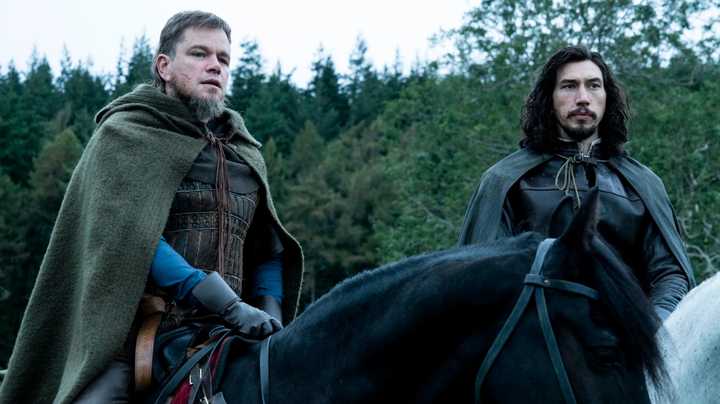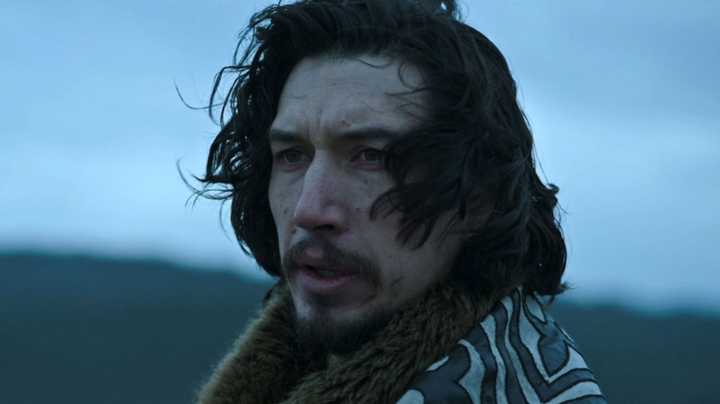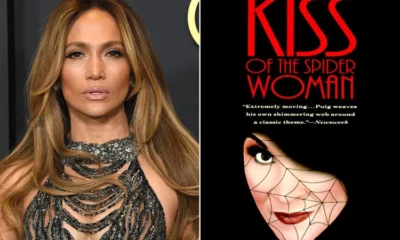CELEBRITY
Fantastic Ridley Scott’s Medieval Epic That Bombed at the Box Office Fights for a Second Chance on Streaming…. Check In

At 86 years old, Ridley Scott hasn’t lost an ounce of relevancy in movie culture. His movies, including his upcoming sequel to his 2000 Best Picture winner, Gladiator II, still feel grand and important. Scott is the ideal kind of filmmaker, one who is a commercially-minded entertainer with a sophisticated touch. Despite his immense popularity, time after time, we overlook Scott’s films upon release. Within no time, movies like Blade Runner and Kingdom of Heaven, thanks to a game-changing director’s cut, became reclaimed as misunderstood gems. No recent film of his is more due for a mass reclamation than The Last Duel, Scott’s classical medievalepic with contemporary social commentary that bombed upon release in 2021. However, years from now, people will deeply regret skipping out on one of Scott’s best directorial efforts in theaters.
The Last Duel’ Failed To Connect With Audiences When It Hit Theaters in 2021
Casual moviegoers may be perplexed that, only three years ago, a grand historical epic directed by Ridley Scott starring Matt Damon, Adam Driver, Jodie Comer, and Ben Affleck (with Damon and Affleck reuniting as screenwriters as well), was widely released to theaters. The film should’ve been a slam dunk, but based on its tepid box office returns of $30 million worldwide, it seems that most people were oblivious to its existence. The Last Duel was an unfortunate victim of the Disney-20th Century Studios merger, as the film began development as a Fox picture. As a result, Disney failed to give the film
proper marketing and awareness, and it became an odd curio rather than a cinematic event. The Last Duel, told from three different perspectives, Rashomon style, follows two knights, Jean de Carrouges (Damon) and Jacques le Gris (Driver), who partake in a duel after Jean’s wife, Marguerite (Comer), accuses Jacques of raping her. Mediating this conflict is Count Pierre d’Alencon (Affleck).
The Last Duel is traditional in the most complimentary way, as it satisfies all your basic urges for a glossy medieval epic with big stars and even bigger sets. Ridley Scott’s knack for verisimilitude and immersive atmospheres is as sharp as ever in this film, with every detail feeling incredibly tactile. The film’s $100 million budget registers on the screen, and the sense of grandeur is evident in the mise-en-scene. The battle sequences glamorize the battle sequences without sanitizing its innate brutality, and are simply too impressive to make you avert your eyes. Matching the intensity of the duels are the appropriately theatrical and ham-fisted performances by Damon, Driver, and Affleck, whose Shakespeareanaffectations play to the nosebleed seats.
Ridley Scott Subverts the Medieval Epic in ‘The Last Duel’
Scott’s impeccable craft of virtuosic set pieces is only half of it, as the film is also a soulful evolution of his thematic traits in the director’s late period era. He uses the familiar medieval French backdrop as a Trojan horse to underline the unscrupulous and misguided politics and social norms of the time. Screenwriters Damon, Affleck, and Nicole Holofcener, the writer-director known for indie dramedies like Enough Said and You Hurt My Feelings, infused post-#MeToo commentary on gender politics and toxic masculinity. Rather than exploiting sexual misconduct to create conflict, The Last Duel taps into the he-said-she-said routine that inexcusably clouds the horrific act at hand. The chapters from Jean and
Jacques’ perspectives are purposefully overwrought and melodramatic to underscore the skewed perspective of the two male characters. In the third chapter, told from Marguerite’s perspective, the film approaches the incident with a sobering, clear-eyed vision.
A medieval epic would feel incomplete without a grand climactic battle sequence. Ridley Scott, an expert in the genre, understood this as well as anyone when he directed Gladiator. In The Last Duel’s opening, we are teased with a monumental showdown between the two fierce knights. After two hours of talky drama filled with hearsay and denial between all parties, when it comes time to depict the final battle, the pomp and circumstance all feel hollow. Scott wisely places Marguerite’s chapter near the climax to lend her perspective and the testimony that she delivers on trial the harshest punch. In this male-dominated world, Scott consciously focuses his attention on the assaulted woman, and in the process, subverts any fervor that would usually arise out
of a hotly contested duel between two knights. After all the build-up, the sword fight becomes immaterial, and we hardly care who comes out on top between Jean and Jacques. The duel becomes less about honor and more about flexing masculine urges.
In a time when we are rarely blessed with mammoth historical epics, The Last Duel’s face-plant at the box office was a grave disappointment. Ridley Scott himself was so frustrated with the response that he blamed “millennials” for its financial failure. Finger-pointing aside, a towering and soulful film like this deserves better, and it’s certain to be reclaimed in the future.

























